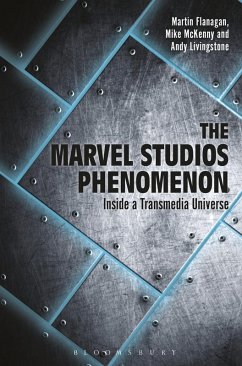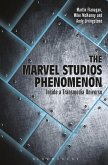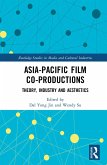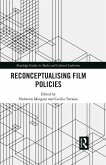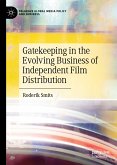Marvel Studios has provided some of the biggest worldwide cinematic hits of the last eight years, from Iron Man (2008) to the record-breaking The Avengers (2012), and beyond. Having announced plans to extend its production of connected texts in cinema, network and online television until at least 2028, the new aesthetic patterns brought about by Marvel's 'shared' media universe demand analysis and understanding.
The Marvel Studios Phenomenon evaluates the studio's identity, as well as its status within the structures of parent Disney. In a new set of readings of key texts such as Captain America: The Winter Soldier, Guardians of the Galaxy and Agents of S.H.I.E.L.D., the thematics of superhero fiction and the role of fandom are considered. The authors identify milestones from Marvel's complex and controversial business history, allowing us to appraise its industrial status: from a comic publisher keen to exploit its intellectual property, to an independent producer, to successful subsidiary of a vast entertainment empire.
The Marvel Studios Phenomenon evaluates the studio's identity, as well as its status within the structures of parent Disney. In a new set of readings of key texts such as Captain America: The Winter Soldier, Guardians of the Galaxy and Agents of S.H.I.E.L.D., the thematics of superhero fiction and the role of fandom are considered. The authors identify milestones from Marvel's complex and controversial business history, allowing us to appraise its industrial status: from a comic publisher keen to exploit its intellectual property, to an independent producer, to successful subsidiary of a vast entertainment empire.

